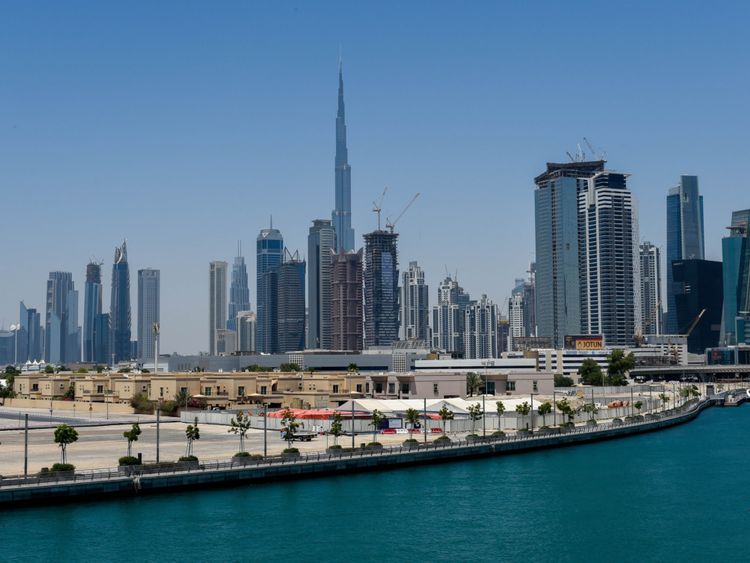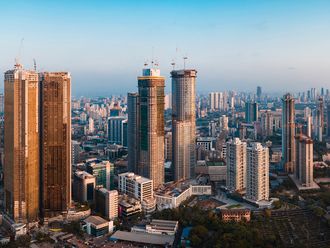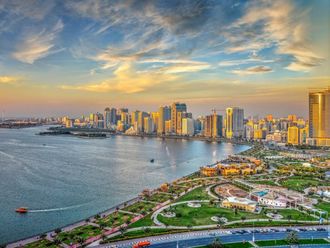Industry analysts believe a more flexible cap on how much banks can allocate for property lending will ultimately be beneficial for the real estate industry. The Union Law No.10 of 1980 regarding the Central Bank & Organisation of Financial Institutions and Activities had previously mandated banks in the UAE to cap their exposure to commercial or residential building construction to a maximum 20 per cent of their total deposits.
“If the bank’s total deposits are Dh100 billion, the bank could finance real estate construction of up to Dh20 billion,” explains Girish Advani, head of assets — retail banking at Noor Bank.
However, the Central Bank of the UAE (CBUAE) announced in 2018 it would do away with the hard cap, and late last year CBUAE governor Mubarak Rashed Al Mansoori confirmed that banks would be allowed to exceed the cap, although he also warned of the risks. “The moment they want to lend higher than 20 per cent there is a capital charge, so they need to assess the risk [and] the return profile of this investment,” said Al Mansoori.
Responsible lending
Removing the fixed ceiling offers banks more flexibility by giving them the liberty to decide on their risk-and-reward ratios, says Advani. “This, in turn, will pave the way for more responsible lending and self-governance on the bank’s part. This brings about more transparency and stability to the real estate sector,” he adds.
Chris Whitehead, managing partner at Gulf Sotheby’s International Realty, believes increasing the lending capacity is a significant step to further revitalising the property sector. “With the increased lending fund predicted, banks will want to activate it to capitalise on the loan returns, so in theory this should stimulate the banks to become more attractive to customers,” says Whitehead. “The new laws will be a catalyst for both sectors — banking and real estate. And with additional flexibility this will inject otherwise unused funds into the real estate sector for the long term, helping first or second mortgage buyers.”
The change
A new regulation is still a work in progress, even as the Central Bank has the flexibility to impose a new ceiling in cases where banks exceed the current lending limit, says Ambareen Musa, founder and CEO of Souqalmal.com.
“The cap… mainly limited banks’ loan exposure to the property sector, and therefore, also limited their credit risk following such lending,” says Musa. “The new move adopts a more market-driven outlook where the Central Bank has the flexibility to regulate lending based on how the real estate market performs. The real estate market has been going through a lull for quite some time, and the regulatory change in lending cap could be just the push needed to reinvigorate demand.”
However, with the new rule, lenders in the UAE will have to be cautious about increasing real estate lending and extending higher loan-to-value ratios. “In the wake of relaxation of the rules around mortgage lending, the onus is on banks to avoid riskier lending practices by adopting prudent risk assessment and upholding underwriting standards,” says Musa.
The impact
Allowing banks to lend more than 20 per cent of the value of their holdings will increase liquidity and ultimately help make funding available to a broader range of buyers. “The theory being the greater the liquidity and funding available, the more accessible banks will make mortgages — hopefully lowering interest rates and making mortgages easier to obtain,” explains Nick Grassick, managing director of PH Real Estate. “By making mortgages more affordable and easier to secure, this should lower the entry barrier for tenants to become homeowners. This will further add to the increasing number of buyers who are taking advantage of record levels of affordability.”
However, while this new policy eases the 20 per cent restriction on the total amount available to finance properties by the banks, the individual mortgage limit remains at 65-75 per cent of the home value. This is still considered high as the property buyers have to put in 25-35 per cent as a down payment when purchasing real estate in Dubai. Raising the loan-to-value ratio on individual purchases, especially for first-time buyers, will further encourage and boost property investments, according to property experts.














